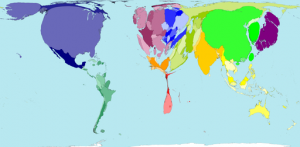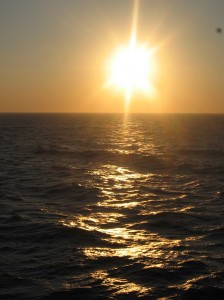
Perchlorate is a toxin; the term itself is a shorthand reference to potassium perchlorate and ammonium perchlorate. The EPA is a government agency tasked with protecting the environment, thus the name being more than mere semantic parry. Efforts to address widespread contamination of ground and ground water by perchlorate have led to the development of some very innovative methods (phytoremediation) that have opened onto a better understanding of how to address a host of complex and seemingly irreversible environmental threats, including biological dead zones that appear in ponds and lakes when contaminant levels surpass a tipping point.
Now the EPA has devised a clever way around the questions of how to regulate, clean up and hold guilty the parties (hint: a shape with five sides) responsible – they will simply refuse to say how much is too much.
Genius. Oh, and then others in the know are apparently shocked at the continued rapid rise in greenhouse gases. The PRC ordered up blue skies for the Olympics; now they’re back off the wagon and the skies are again cloudy all day.
I doze in the mornings and am awakened at night by the elusive question, what we are doing? And then, after a while they come to me, some words of others, ostensibly about a whole other thing. In this case, John Ruskin, in his essay on architecture, The Stones of Venice:
It is not, therefore, that the signs of his affections, which man leaves upon his work, are indeed more ennobling than the signs of his intelligence; but it is the balance of both whose expression we need, and the signs of the government of them all by Conscience; and Discretion, the daughter of Conscience. So, then, the intelligent part of man being eminently, if not chiefly, displayed in the structure of his work, his affectionate part is to be shown in its decoration; and, that decoration may be indeed lovely, two things are needed: first, that the affections be vivid and honestly shown; secondly, that they be fixed on the right things.
1853
Shoulders of giants… they look like ants from here.
Image of Zinc Oxide nano ribbons reproduced with permission.



